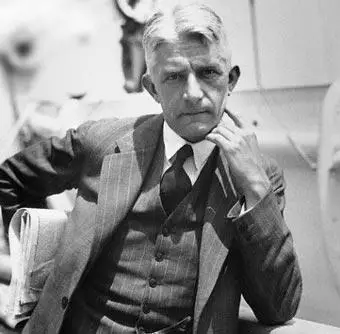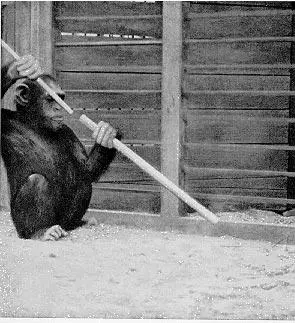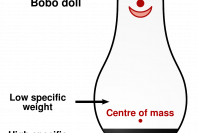The theory of Insight Learning was first proposed by German-American psychologist, one of the founders of Gestalt psychology, Wolfgang Köhler. Insight learning is among various methods of Behavioral learning process, which is a fundamental aspect of Behavioral Psychology

The psychologist gained fame with his studies on cognitive processing involved in problem-solving by animals. His tests in Tenerife in the 1910s with chimpanzees suggested that these animals solved problems by understanding – like human beings, instead of going through
- trial and error process
- stimulus response association
Insight learning refers to the sudden realization of the solution of any problem without repeated trials or continuous practices. To further elaborate on its definition, insight learning is the type of learning, in which one draws on previous experience and also seems to involve a new way of perceiving logical and cause-and-effect relationship.
Insight is an awareness of key relationships between cause and effect, which comes after assembling the relevant information and either overt or covert testing of possibilities. Learning through such insight is called insight learning.
How Insight Learning was experimented?
Köhler placed a chimpanzee named Sultan inside a cage. Sultan grew hungry and a bunch of banana was placed just outside the cage. Sultan was provided with one long and another short bamboo stick. Neither of the sticks could reach the banana alone and the only possible way to reach the banana was to join the two sticks.
Initially, Sultan showed all customary reactions that a chimpanzee shows inside a cage, and gradually tried to draw the banana towards him with the sticks. After countless fruitless efforts, Sultan nearly gave up, but as he was playing with the sticks, he managed to touch the banana by pushing a stick with another stick. Sultan accidentally managed to join the two sticks and with its help, it pulled the banana inside the cage. Sultan immediately grabbed the banana when faced with the same problem next day.

Seeing the relationships among various aspects of the problems is described as learning by insight.
Characteristics of Insight Learning
There are two major determining characteristics of insight learning.
The first is that insight represents seeing clearly into the heart or essence of a situation, and the other is that we do not do this by a step-by-step process, but partially by unconscious processes. Although insight learning suggests sudden realization of a solution, insight is not a process that occurs out of the blue.
- First part of the path comes from intense research or work pertaining to some domain, which is termed as the pre-solution period.
- The time of idleness in which the idea or concept seems to spontaneously pop up is the next step.
Having the idea or concept is not enough; it needs to be taken back to the thinking and working stage so that it can be materialized. There needs to be a certain basis for insight to appear, as insight depends upon the time and events that take place in order for the material to be transformed from initial stimuli into insightful thought.
Some other characteristics of Insight Learning are as follows:
- Insight leads to change in perception.
- Insight is sudden.
- With insight, the organism tends to perceive a pattern or organization (that helps in learning).
- Understanding plays important role n insight learning.
- Insight is related with higher order animals and not with inferior animals.
- Age influences insight learning. Adults are better learner than children.
- Past experience and perceptual organization is important in perception.
- Some psychologists also relate insight learning with associative learning.




